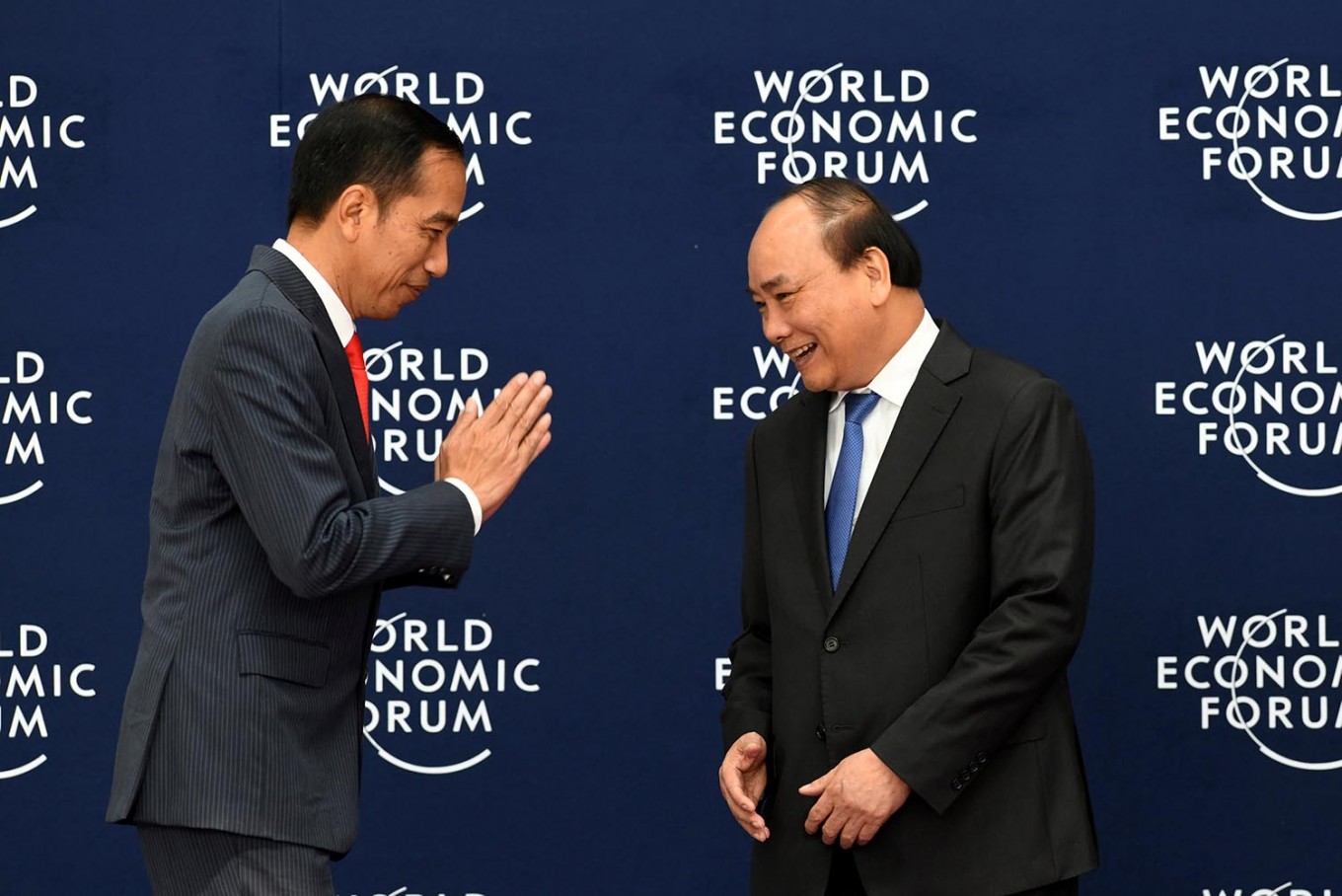Popular Reads
Top Results
Can't find what you're looking for?
View all search resultsPopular Reads
Top Results
Can't find what you're looking for?
View all search resultsIndonesia, Vietnam speed up EEZ delimitation
Change text size
Gift Premium Articles
to Anyone
I
ndonesia and Vietnam have agreed to speed up maritime delimitation, while at the same time starting fresh talks to establish “provisional common guidelines” to prevent fishing incidents.
President Joko “Jokowi” Widodo met his Vietnamese counterpart, Prime Minister Nguyen Xuan Phuc, on Saturday at the 34th ASEAN Summit in Bangkok, where they agreed to accelerate the ongoing negotiations on the delimitation of their exclusive economic zones (EEZ), said Foreign Minister Retno LP Marsudi.
“The negotiation has taken a long time, and the two leaders stated that efforts to resolve this negotiation should be accelerated, otherwise we would experience incidents like we have experienced so far,” Retno said on Saturday.
The EEZ delimitation with Vietnam is one of five active border negotiations Indonesia is currently engaged in. The talks have been going on for years without results. The two countries previously reached an agreement on a continental shelf boundary in 2003 — after 30 years of negotiations.
Earlier this year, the Indonesian Navy reported that a vessel belonging to Vietnam’s Fisheries Resources Surveillance (VFRS) Agency had rammed one of its corvette-class warships to obstruct the impounding of a Vietnam-flagged boat suspected of fishing illegally in Indonesian waters. Maritime Affairs and Fisheries Minister Susi Pudjiastuti has lamented that was not the first such incident.
Experts have suggested that the two countries establish temporary standard operating procedures to deal with the disputed waters both sides claim as part of their EEZs, as the ongoing delimitation negotiations have yet to produce results.
To solve this particular problem, Retno said, officials of the two countries would meet to address various issues regarding EEZs and possibly devise interim guidelines for the disputed waters.
“We will probably discuss the provisional common guidelines temporarily, which will regulate the area being negotiated while waiting for the negotiations to be completed. This is to prevent unnecessary incidents,” she said.
Meanwhile, the Philippines ratified an EEZ delimitation agreement with Indonesia earlier this month, concluding the entire negotiation process as the two foreign ministers formally exchanged the ratification documents in August.
The agreement sets out boundaries in the overlapping EEZs of the Philippines and Indonesia in Mindanao and Celebes seas.
When President Jokowi met Philippine President Rodrigo Duterte in Bangkok on Saturday, they praised the resolution of the issue.
“The agreement provides legal certainty on the EEZ boundary between the two countries,” the two leaders said.
The ratification by the Philippines followed a similar move by Indonesia in 2017, when Indonesia ratified the maritime deal over the EEZ boundaries in the Mindanao Sea and the Celebes Sea. The agreement itself was signed in 2014 after 20 years of negotiations.
The Indonesian Foreign Ministry’s legal affairs and international treaties director general, Damos Agusman, said the agreement was the first maritime boundary agreement between the two largest archipelagic states. The agreed line, he said, was drawn from the respective archipelagic straight baselines using a set of innovative provisions of the 1982 UN Convention on the Law of the Sea (UNCLOS).
“The next agenda point would be the negotiation of the continental shelf in the same area covering the agreed EEZ to demonstrate that the EEZ lines and the continental shelf lines are two different legal regimes, for which different negotiations are absolutely required,” Damos said on Sunday.







